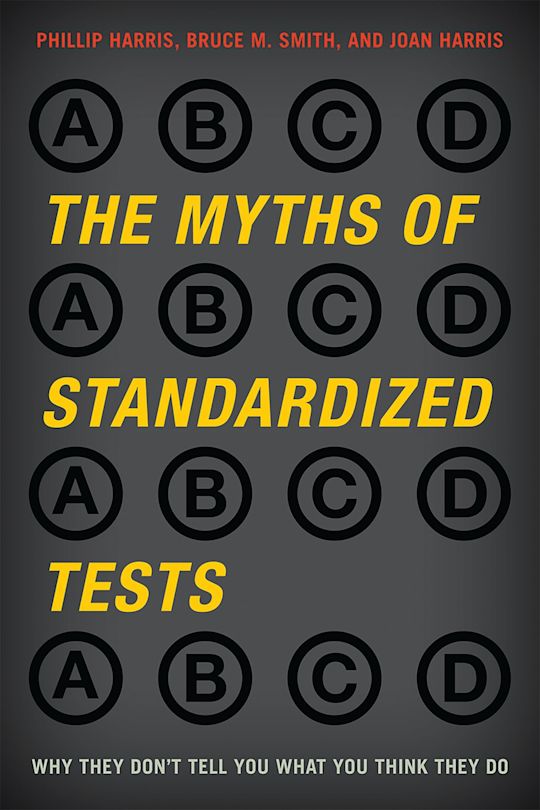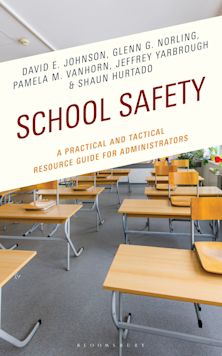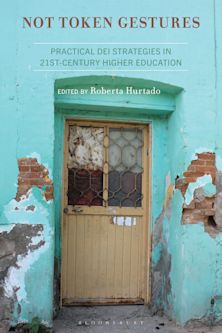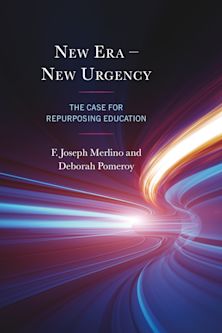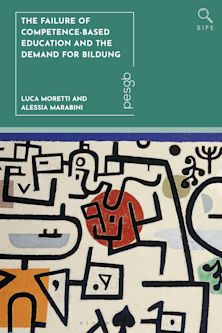The Myths of Standardized Tests
Why They Don't Tell You What You Think They Do
The Myths of Standardized Tests
Why They Don't Tell You What You Think They Do
- Delivery and returns info
-
Free US delivery on orders $35 or over
Description
Pundits, politicians, and business leaders continually make claims for what standardized tests can do, and those claims go largely unchallenged because they are in line with popular assumptions about what these tests can do, what the scores mean, and the psychology of human motivation. But what most of what these opinion leaders say-and the public believes-about standardized testing just isn't so. However, few members of the general public, not even concerned parents, have the time or the background to keep up with the latest findings of testing experts, psychometricians, and researchers. That's where The Myths of Standardized Tests comes in. In simple, accessible language, Harris, Smith, and Harris spell out the assumptions underlying standardized tests and point out what's true about them and what's just plain mythical. But they not only debunk common assumptions; they propose better ways to judge the success of our schools. They also offer readers suggestions for ways they can help reduce the burden of tests on their children.
Appendixes offer readers contact information and suggestions for actions they can take to become part of the solution to the problem of overusing and misusing standardized tests.
Table of Contents
Part 2 Chapter 1. Misunderstanding Accountability: The Big Picture
Part 3 Chapter 2. The Tests Are Too Narrow
Part 4 Chapter 3. The Tests Don't Measure Achievement Adequately
Chapter 5 Testing Autobiography: Phil's Story
Part 6 Chapter 4. The Tests Are Less Than Objective
Chapter 7 Testing Autobiography: Bruce's Story
Part 8 Chapter 5. Rewards and Punishments Don't Motivate
Chapter 9 Testing Autobiography: Joan's Story
Part 10 Chapter 6. The Distortions of High Stakes
Part 11 Chapter 7. What's Left Out?
Part 12 Chapter 8. Why Not More Direct Measurement?
Part 13 Chapter 9. The Tests Don't Predict Well
Part 14 Chapter 10. New Ideas for Genuine Accountability
Part 15 Chapter 11. What's It All About?
Part 16 Resource Guide
Part 17 A Medley of Views
Chapter 18 'Reading' the Reading Tests
Chapter 19 Misunderstood Measurement Mallets
Chapter 20 A Use of Tests I Could Support
Chapter 21 Within Limits, Tests Can Be Useful
Chapter 22 Kids or Cows?
Chapter 23 The Tests We Need Today
Chapter 24 A Smokescreen
Chapter 25 The Game of School
Part 26 Say What?: An Abbreviated Glossary
Product details
| Published | Nov 03 2017 |
|---|---|
| Format | Paperback |
| Edition | 1st |
| Extent | 206 |
| ISBN | 9780810896147 |
| Imprint | Rowman & Littlefield Publishers |
| Dimensions | 9 x 6 inches |
| Publisher | Bloomsbury Publishing |
Reviews

ONLINE RESOURCES
Bloomsbury Collections
This book is available on Bloomsbury Collections where your library has access.








